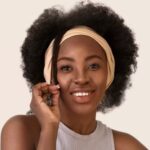As the pursuit of youthful and radiant skin remains a top priority for many individuals, the world of skincare has evolved to offer a myriad of options. Among these are anti-aging skincare products, which promise to help combat the signs of aging and maintain a youthful appearance. However, a common question arises: when is the best time to start using these products? Is there an optimal age to begin an anti-aging skincare routine? In this article, we’ll explore the factors to consider and provide insights into the ideal age to start using anti-aging skincare products.
Understanding Aging and Skin Changes
Before determining the appropriate age to start using anti-aging skincare products, it’s important to understand how the aging process affects the skin. As we age, our skin undergoes various changes, including a reduction in collagen and elastin production, decreased skin cell turnover, and the emergence of fine lines and wrinkles. Factors such as genetics, sun exposure, diet, and lifestyle choices can also impact the rate at which these changes occur.
Preventive vs. Corrective Approach
When it comes to anti-aging skincare, there are two main approaches: preventive and corrective. Preventive skincare involves establishing healthy habits and using products that help delay the onset of visible signs of aging. Corrective skincare, on the other hand, focuses on addressing existing signs of aging, such as fine lines, wrinkles, and age spots.
Ideal Age to Start Preventive Care
Experts generally agree that a preventive approach to anti-aging skincare can begin as early as the mid-20s to early 30s. During this period, the skin is still relatively youthful and resilient. Basic skincare practices such as using sunscreen, maintaining a healthy diet, staying hydrated, and practicing good skincare hygiene can greatly contribute to skin health and delay the onset of visible aging.
Gradual Introduction of Products
As individuals enter their late 20s to early 30s, they may consider introducing certain anti-aging skincare products into their routine. These can include products containing antioxidants (such as vitamin C) to protect against free radical damage, hyaluronic acid to maintain hydration, and mild retinoids to support collagen production and cell turnover.
Corrective Care and the 40s
For those in their 40s, the skin may start showing more noticeable signs of aging. This is a suitable time to consider incorporating more potent anti-aging products, such as higher-strength retinoids, peptide-rich serums, and products that target specific concerns like crow’s feet or age spots.
Personalization and Professional Advice
It’s important to note that there isn’t a one-size-fits-all answer when it comes to skincare. Factors like skin type, lifestyle, and genetics play a significant role in determining the most appropriate age to start using anti-aging products. Seeking advice from a dermatologist or skincare professional can provide personalized recommendations tailored to individual needs.
Conclusion
In the realm of anti-aging skincare, the best age to start using products depends on various factors, including skin type, lifestyle, and individual preferences. A preventive approach can begin in the mid-20s to early 30s, focusing on establishing healthy habits and basic skincare practices. As the years progress, the introduction of more targeted and potent anti-aging products can help address specific concerns and maintain youthful skin. Remember that skincare is a journey, and finding the right products and routine for your unique needs is key to achieving and preserving a healthy and radiant complexion.





